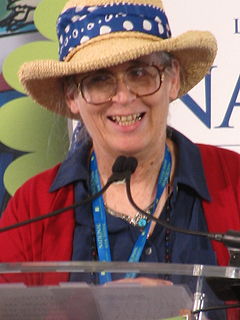A Quote by James Arthur
William Shakespeare tried hard to see every facet of every question, probably because he was more interested in questions than in answers. That's a big part of what makes him great, in my opinion.
Related Quotes
A tree is alive, and thus it is always more than you can see. Roots to leaves, yes-those you can, in part, see. But it is more-it is the lichens and moss and ferns that grow on its bark, the life too small to see that lives among its roots, a community we know of, but do not think on. It is every fly and bee and beetle that uses it for shelter or food, every bird that nests in its branches. Every one an individual, and yet every one part of the tree, and the tree part of every one.
I read once, which I loved so much, that this great physicist who won a Nobel Prize said that every day when he got home, his dad asked him not what he learned in school but his dad said, 'Did you ask any great questions today?' And I always thought, what a beautiful way to educate kids that we're excited by their questions, not by our answers and whether they can repeat our answers.
Most people believe that great leaders are distinguished by their ability to give compelling answers. This profound book shatters that assumption, showing that the more vital skill is asking the right questions…. Berger poses many fascinating questions, including this one: What if companies had mission questions rather than mission statements? This is a book everyone ought to read—without question.




































